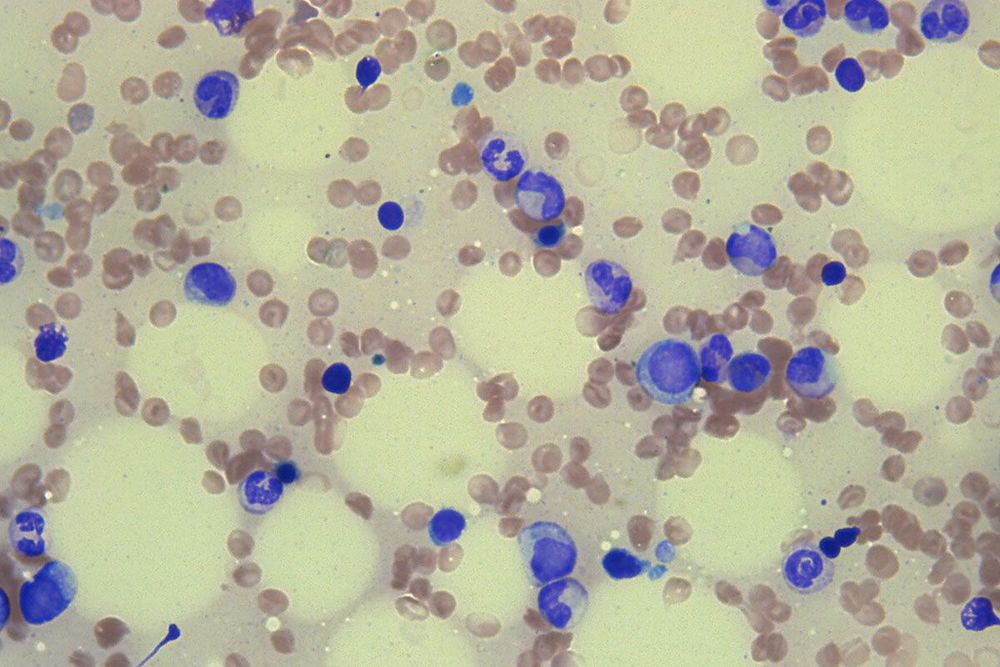A new study from Washington University School of Medicine in St. Louis suggests that bone marrow — or blood stem cells — from healthy donors can harbor extremely rare mutations that can cause health problems for the cancer patients who receive them.
A stem cell transplant — also called a bone marrow transplant — is a common treatment for blood cancers, such as acute myeloid leukemia (AML). Such treatment can cure blood cancers but also can lead to life-threatening complications, including heart problems and graft-versus-host disease, in which new immune cells from the donor attack a patient’s healthy tissues.
A new study from Washington University School of Medicine in St. Louis suggests that extremely rare, harmful genetic mutations present in healthy donors’ stem cells — though not causing health problems in the donors — may be passed on to cancer patients receiving stem cell transplants. The intense chemo- and radiation therapy prior to transplant and the immunosuppression given after allow cells with these rare mutations the opportunity to quickly replicate, potentially creating health problems for the patients who receive them, suggests the research, published Jan. 15 in the journal Science Translational Medicine.
Among the concerns are heart damage, graft-versus-host disease and possible new leukemias.
